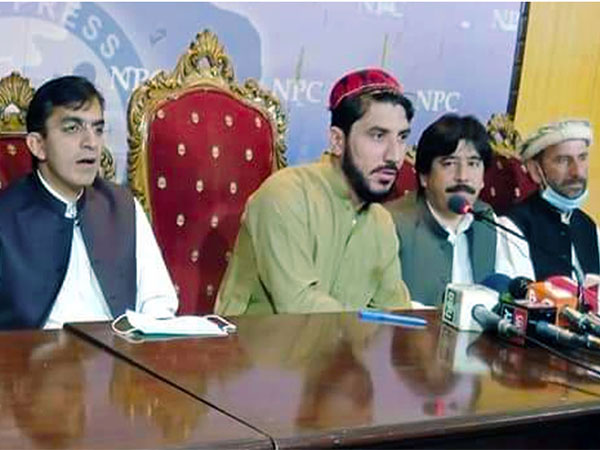The leader of the Pashtun Tahafuz Movement (PTM), Manzoor Pashteen, has claimed the Pakistani government of obstructing efforts to promote peace in Kurram. He claimed that a Pashtun Jirga, assigned with the responsibility of fostering reconciliation, was consistently obstructed by state authorities.
Pashteen asserted that the Jirga, which comprised elders, religious scholars, and notable community figures, was prevented from entering Kurram on several occasions. “We have tried three times in a row to enter Kurram to promote peace, but each time, Pakistani forces stopped us,” he explained reported by Balochistan post.
The Jirga sought to foster reconciliation and ease tensions in Kurram through traditional means. However, Pashteen alleged that state authorities imposed restrictions to obstruct their efforts.
In a message to the people of Kurram, Pashteen expressed his support and reaffirmed his commitment to the region. “The pain of Kurram is our pain,” he stated. “We have made efforts for peace there, but you all are familiar with the state’s oppressive measures, such as blockades and restrictions.”
Despite the challenges, Pashteen reaffirmed the PTM’s dedication to achieving peace. “We are determined to continue working for peace in Kurram. We will explore other avenues and persist in our efforts for the welfare of our people,” he said.
Pakistan‘s Kurram region has faced numerous attacks in recent years, primarily due to ongoing ethnic and sectarian tensions, along with insurgent activity. The area, situated in the tribal belt near the Afghan border, has seen clashes involving militant groups, sectarian violence, and assaults by armed factions. Schools have been closed, and the region remains in a state of unrest as security forces face difficulties to restore order.
A significant development in the region has been escalating sectarian violence between Shia and Sunni groups in the region, particularly in Kurram Agency, which has witnessed various bombings, ambushes, and cross-border conflicts. These attacks have led to a substantial loss of life and increase the vulnerability of the local population. The Pakistan Army has frequently carried out operations to restore stability, but violence has persisted intermittently.
Militant groups such as the Tehrik-i-Taliban Pakistan (TTP) and others groups active in the region have also been responsible for numerous attacks, targeting both military and civilian infrastructure.

